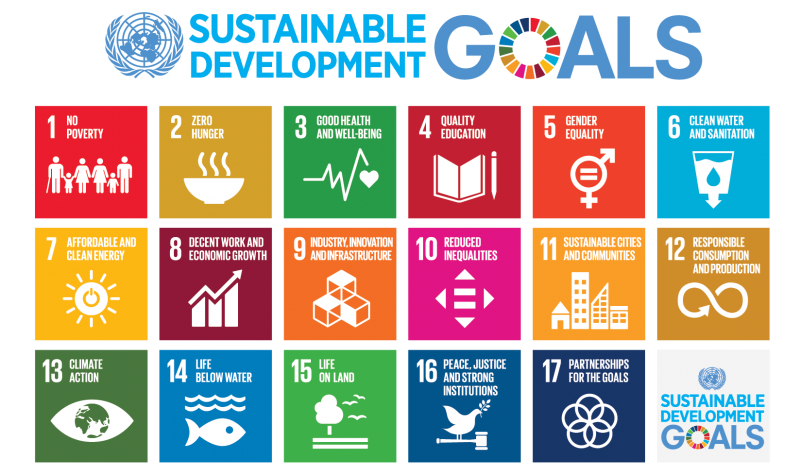Imagine a future where people make all business decisions considering the impact not only on profit, but also the impact on people and the planet. This future is possible, and necessary for a number of reasons: employees, consumers, and society expect it, it is the right thing to do, we can’t do business on a dead planet, and it is good business to do good business (now and for future proofing). Ensuring a positive impact on people, places and the planet, while running a business moves organisations from being purely “sustainable” to becoming regenerative organisations.
The time for making decisions based on just profit is over, and only organisations that make this shift will be relevant in the future as more and more consumers move their business away from companies that they perceive to be harming people and the planet to ones that are seen to do good or be regenerative. Integrating sustainability into the business and into business decision making is paramount for the long-term viability of any organisation. Successful companies will need to create value for stakeholders while also making a positive social contribution to society and impacting the planet positively. This is not just coming up with some new measurements or activities, it is about true integration. To do this several things need to happen within a company:
- Purpose
- Relevance and distributed ownership
- Measurement
Purpose
In every company there is a purpose, whether it is written or implicitly agreed. If that purpose is only about making the maximum return for investors, then it does not matter what else happens, this will continue to be the number one priority. Decisions are made unconsciously based on a purpose. Therefore, it is important to state that the purpose of the company is about more than just making short term profit and is also about ensuring the long-term viability of the company, and having a positive impact on people, and the planet. To start thinking about a potential purpose the most material topics for the organisation should be considered, this can be done by looking at double materiality: considering what impacts the organisation from a social and environmental perspective, and the impact of the organisation on the environment and society. Having stated a purpose will move the mindset of the company, which is the most important factor in making change happen. Of course, this needs to be backed up by real action.
The best way to ensure real action starts is to set bold targets. From a planetary perspective the most scientific way to show an organisations seriousness is to set Science Based Targets pursuing a world limiting global warming to 1.5°C. The Science Based Targets Initiative (SBTi) have recently set a new standard for becoming “net zero” that has clear guidance on how to set these targets.

Aligning with the most appropriate global Sustainable Development Goals (SDGs) is another way to ensure that the goals of an organisation are in line with what is needed. If a double materiality assessment has been done then the impact on the SDGs from the internal capabilities will become clear and the goals can work towards solving some of the world’s greatest problems and become an opportunity, including a commercial one, for the organisation.
Finally, the purpose and goals need to be communicated, and transparency is becoming more important, both internally within a company and externally, with new requirements coming from:
- EU Green Deal
- EU taxonomy
- Corporate Sustainability Reporting Directive (CSRD)
- and International Sustainability Standards Board (ISSB)
Sharing the goals both internally and externally ensures that an organisation is held accountable by employees and external stakeholders and allows for engagement with them to work together to benefit the organisation and people and planet.
Relevance and distributed ownership
Making the sustainability objectives of a company relevant to what the company does is paramount for the credibility and actionability of the integration and the buy-in from employees. It cannot only be the top management of a company or, conversely, the front-line employees who work to deliver a company’s sustainability objectives. It is important to ensure distributed ownership across all levels of a company and most importantly to hook into the passions of individuals. There is a reason that employees work for a company and if the sustainability purpose is relevant then it is easier to hook into the individual passions of the employees who want to make a difference. For some it may be having a regenerative impact on the planet, for others on people’s health or for others improving equality. Whatever it is, understanding the individual passions of employees and why they work for a company will enable better integration and relevance.
Measurement
In any organisation, what gets measured gets done. To fully integrate sustainability into decision making all employees need to be measured and followed up on more than just profit. Integrating sustainability measurements into the performance follow-up and, ideally, renumeration, including bonuses, of all employees is the final key to ensuring that sustainability is considered in business decisions. This will move the decision making to being consciously about what is important for the company and will support the mindset shift coming from having a purpose based on more than profit. An example of comes from Ingka, the world’s largest IKEA franchisee. They integrate sustainability performance into their internal value creation goals, which look at the impact on 4 Better’s: Better Lives, Better Homes, Better Planet and Better Company. This is also continued externally where the ESG reporting is based on this, and the activities are aligned with the impacts on the big ambitions of the 4 Betters.
When developing and integrating sustainability measurements it is important to talk the language of the business. In sustainability it is very easy to use very detailed methodologies and a lot of acronyms. Using these technical terms will not help integrate sustainability into the business, rather only help to show how sustainability is not part of the core business. Employees do not want to hear that the Green House Gas (GHG) Protocols do not allow a certain methodology of measuring emissions from their activities. They want to know how they are performing, how they could be performing better and what actions they need to take to improve that performance. Therefore, it is important to understand the language of the business and translate measurements so that they are understandable and actionable by all employees.
When starting to develop sustainability measurements, it is also easy to get stuck in methodologies that are 100% correct to all standards and protocols. For reporting externally and auditing this is important, but for moving the business it is more important to ensure that mindset is front and centre. What is it that is most important to move in the business? What measurement will make the biggest impact in moving that big challenge forward? There are three key things when starting this journey:
- Get started
- Show it works
- Small wins and expand
Get started
While it can feel good to have a complete sustainability performance framework and be able to see holistic performance from day one, this will take a long time and the business will move ahead with or without this. It is important to get started with something. Identify where there is most energy or where the biggest impacts lie and then measure that. Getting started with something will help gain momentum.
Show it works
After picking an area of the business that has the most energy for making a difference, show it works in that area. The employees in this area will become the biggest advocate for the success of the measurements and others will see that this works. Generally, these areas will also outperform other areas of the business, not just in sustainability, but in profit and other standard business metrics as well. When others see the success, they will want to be a part of it.
Small wins and expand
After the first successes, it becomes much easier to expand both the scope of the measurements and their integration across the whole business. As the successes mount so does the pace of adoption and it moves from pushing out new measurements, that may not be that popular initially, to people in the business wanting to have the new measurements and the pull effect has a lot more energy, and raises different challenges, but is much more likely to succeed. For more on measuring sustainability and some concrete examples click here.
When put together, these elements can truly integrate sustainability into business decision making. Being part of the purpose is the base that ensures everyone understands that the business wants to do this, ensuring that the ownership is distributed across the business and hooks into employee’s passion is key to getting the buy-in and finally getting started with measurements ensures that people can understand their personal impact and what they need to do to improve the performance and brings people along. Integration takes time, but with these steps it has a viable chance of succeeding.
The future is for organisations that are regenerative and balance their profit with having positive impacts on people and the planet, and the sooner companies get started, the more likely they are to succeed.



